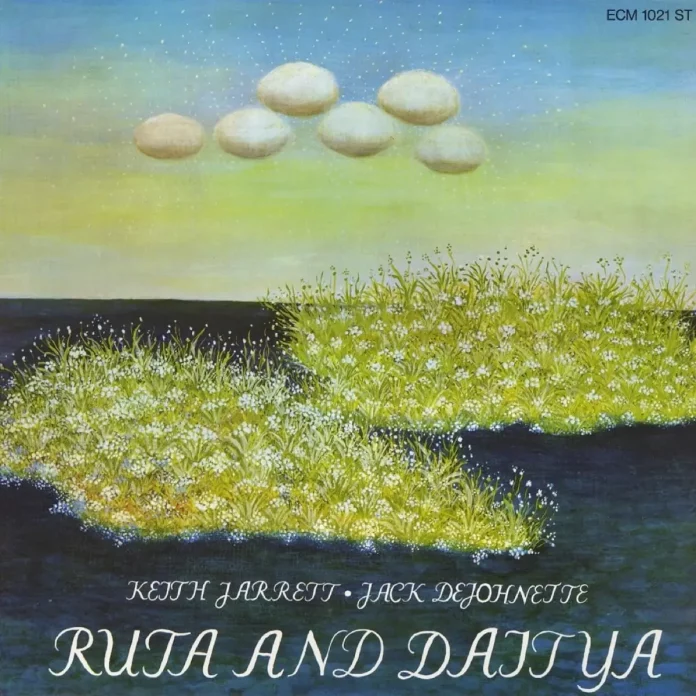Keith Jarrett is invariably a lightweight player and this fact is reflected on this album. If anyone can be seen as a modern equivalent of a cocktail pianist he is it. His flute is as uninspired as his soprano playing, although fortunately none of the latter is heard on this record.
None of his keyboard work is really bad, however, and even if his electric piano on tracks like Communion lacks creative development, it does make telling use of the instrument. Jarrett manages to occupy that difficult area between the manual instrument and the guitar, with some skill. On straight piano he tends to be a rambling player and the electronics give him depth, even if superficially.
The best example of his ordinary piano is to be heard on the Awakening section of Sounds Of Peru, where he plays with purpose and invention, while managing to curb his verbosity. As if to prove that he can play basic piano he comes on in the last strain of the title track like an old Baptist church pianist.
DeJohnette drums with great sensitivity throughout and he is asked to play many different roles. He has never been a quiet drummer but his use of sticks, brushes or hands always seems appropriate to the music. The compositions are by Jarrett or both men together and are uniformly good. Outstanding are the two-part Sounds Of Peru and the very gentle and all too brief Pastel Morning.
Discography
Overture – Communion; Ruta And Daitya; All We Got (20 min) – Sounds Of Peru – Submergence – Awakening; AIgeria; You Know, You Know; Pastel Morning (22 min)
Keith Jarrett (p, elp, org, flt); Jack DeJohnette (d, pc). Los Angeles, 1971.
(ECM Records ECM 1021 ST)
















